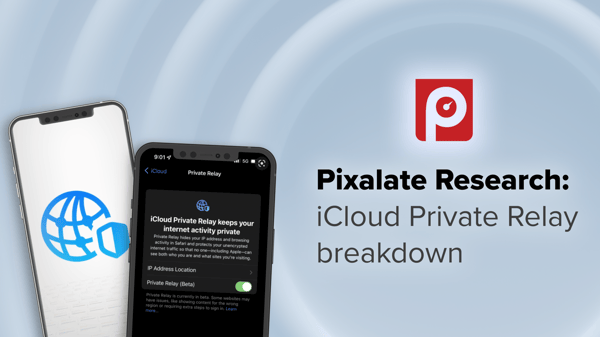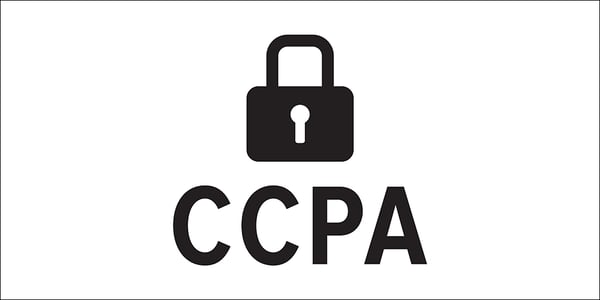
This week's review of ad fraud and privacy in the digital advertising space:

Pixalate conducted a study of Apple’s iCloud Private Relay, covering over 70 billion transactions analyzed by Pixalate over a 3-month period, and provided insights into the apparent impact of iCloud Private Relay so far.
The concerns around iCloud Private Relay are driven by the fear of losing accurate user IP Address information, which could have impacts in the following areas: fingerprinting, location-based advertising, frequency capping, measurement and ad fraud detection.

AdWeek published an article detailing the findings of Pixalate’s Q2 2022 COPPA Scorecard report, saying, “a report by fraud detection platform Pixalate claims that a number of apps aimed at children are violating COPPA (Children’s Online Privacy Protection Act) by unknowingly sharing data signals.”
“Furthermore, Pixalate was unable to locate privacy policies, or policies were not declared, for 16% (24,209) of the apps on Apple’s store that are child-directed and 10% (27,427) of the apps on Google’s store that are child-directed. The report found a total of 66 U.S. registered apps continue to share geolocation data with advertisers, thereby, further violating COPPA.”
![]()
LifeWire used Pixalate’s Q2 2022 COPPA Scorecard report findings in a recent article saying app developers are trying to shirk the law by pushing growing numbers of apps that collect personal information into the Apple app and Google Play stores.
“Pixalate, a fraud protection, privacy, and compliance analytics platform, examined the state of children's online privacy by scrutinizing over 4,22,000 apps that they believe are meant for use by children in both the Apple and Google Play stores. Their research found that 68% of the top 150 most popular US-registered apps and 70% of the top 1000 apps for children, which Pixalate reviewed manually, transmitted location information, while 59% requested permission to access other personal information.”

MediaPost detailed a conflict in California laws this week, with newly proposed privacy regulations conflicting with their recently passed Privacy Rights Act. Several advertising advocacy groups authored a letter to the California Privacy Protection Agency (CPPA) saying, “We are concerned that several provisions in the proposed regulations contravene the clear text” of the law. The groups propose that the CPPA revise the rules “to ensure that they align more clearly with the text” of the California Privacy Rights Act.

The Washington Post provided an in-depth look at how recent revelations by Twitter’s former security chief could affect the company’s upcoming legal battle against Tesla CEO Elon Musk. Musk canceled a proposed deal to buy the company for $44 billion earlier this year, citing “that the social media company is vastly undercounting the number of spam and bot accounts on its platform, and therefore overstating the number of legitimate users.”
Peiter Zatko, Twitter’s former head of security, filed a whistleblower complaint saying that Twitter did not incentivize providing the true number of fake accounts on the platform, possibly strengthening Musk’s case.
*By entering your email address and clicking Subscribe, you are agreeing to our Terms of Use and Privacy Policy.
These Stories on Weekly Recaps
*By entering your email address and clicking Subscribe, you are agreeing to our Terms of Use and Privacy Policy.

Disclaimer: The content of this page reflects Pixalate’s opinions with respect to the factors that Pixalate believes can be useful to the digital media industry. Any proprietary data shared is grounded in Pixalate’s proprietary technology and analytics, which Pixalate is continuously evaluating and updating. Any references to outside sources should not be construed as endorsements. Pixalate’s opinions are just that - opinion, not facts or guarantees.
Per the MRC, “'Fraud' is not intended to represent fraud as defined in various laws, statutes and ordinances or as conventionally used in U.S. Court or other legal proceedings, but rather a custom definition strictly for advertising measurement purposes. Also per the MRC, “‘Invalid Traffic’ is defined generally as traffic that does not meet certain ad serving quality or completeness criteria, or otherwise does not represent legitimate ad traffic that should be included in measurement counts. Among the reasons why ad traffic may be deemed invalid is it is a result of non-human traffic (spiders, bots, etc.), or activity designed to produce fraudulent traffic.”

